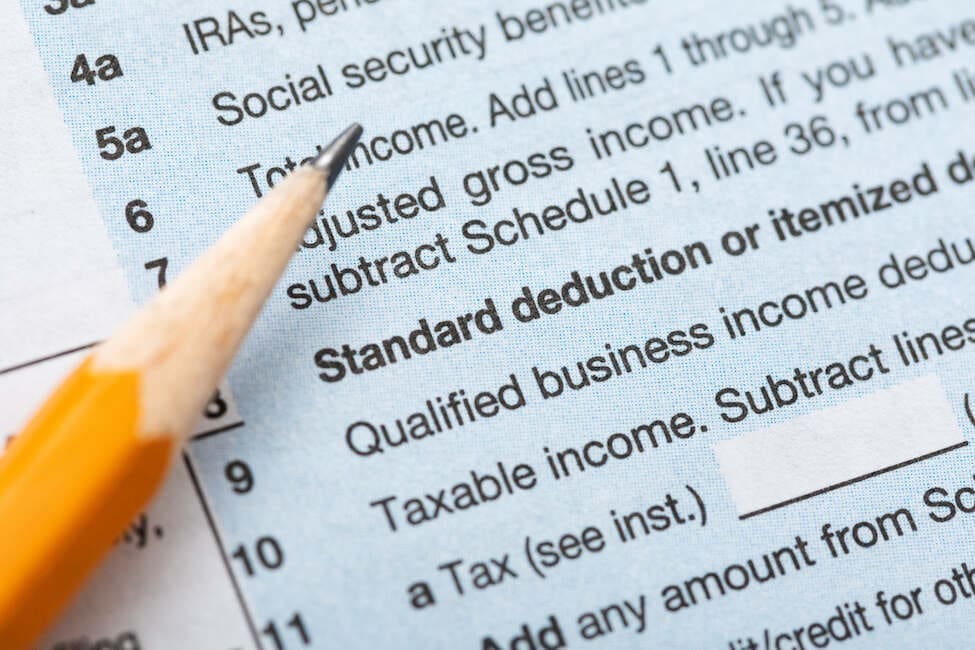With the IRS standard mileage rate change in 2022, taxpayers require clarity on the updated 2023 mileage rates and how to accurately claim qualifying transportation expenses. Learn more about IRS standard mileage rates, when they’re appropriate to use, how to claim them and other essential tips for maximizing your deductions.
IRS Mileage Rate 2023 Overview
The IRS has released the standard mileage rates for 2023, giving businesses and individuals a clear picture of their potential deductions for vehicle expenses. The standard mileage rate sits at 65.5 cents per mile driven for the 2023 tax year but increases to 67 cents at the beginning of 2024.
This rate applies to electric and hybrid-electric automobiles, as well as gasoline and diesel-powered vehicles.The IRS standard mileage rate is critical for those who use vehicles in their business operations or have moving or medical-related driving costs.
In addition to the standard rate, there are specific rates applied based on different uses, such as medical care or moving purposes, which stand at 22 cents per mile. Charitable organizations get a set rate of just 14 cents per mile.
Should You Use the Standard Mileage Rate?
For every mile driven for legitimate business purposes in 2023, you can deduct 65.5 cents from your taxable income, which is a boost from last year. Remember, it’s not just about knowing these rates—you need to understand both how they are calculated and how to apply them in order to maximize potential savings.
Using the standard mileage rate method is optional. The rate takes into account factors such as gas prices and general wear-and-tear costs associated with using a vehicle for business operations.
The other option is to track actual costs associated with fueling and maintaining any vehicles used for business activities. You may keep individual gas receipts in addition to a complete mileage log showing every mile driven and its purpose. However, this is usually more cumbersome for business owners, particularly when vehicles are used for both personal and business use.
How to Claim the Mileage Rate on Your Business Taxes
If you use your vehicle for commercial activities, the IRS allows a standard mileage rate to be claimed on your tax filings. The process is simpler than it sounds.
Deductible Business Expenses
The first step is identifying which expenses can be deducted. These are typically costs related directly to driving your vehicle for business purposes.
To get these deductions right, make sure you keep an accurate log of all miles driven for work-related tasks during the year—not just commuting, but also trips between client meetings or other official errands.
Remember, you will need this info when filling out Form 1040 at tax time. You will multiply your total business miles by the IRS’s standard mileage rate, unless you choose to itemize your vehicle expenses, in which case you would record your actual expenses.
How to Track Your Mileage
If you’re using your vehicle for business, medical or moving purposes, it’s crucial to keep a detailed record when driving. Maintaining a mileage log is essential not only for obtaining accurate deductions on taxes, but also to show transparency with the IRS.
Mileage Logs
The first step is to start maintaining a mileage log. Each time you drive, you need to jot down important details like:
- Date driven
- Destination
- Purpose
- Odometer readings
- Miles covered
You can either use a physical notebook or opt for digital apps that are specifically designed for this purpose. They automatically track distances and help streamline the entire process.
This practice will save you from unnecessary hassles during the tax season and give you peace of mind knowing all driving costs have been accurately accounted for.
Different Uses and Their Rates
Knowing the IRS mileage rates for different uses can save you money. The 2023 IRS standard mileage rate takes into account vehicle costs like gas prices and lease payments.
Moving Expenses for Qualified Active-Duty Members
Active-duty members of the armed forces who are relocating due to a military order can take advantage of the IRS standard mileage rate for moving expenses, which remains at 22 cents per mile in 2023. With cross-country drives or multiple trips, these miles can add up.
Charitable Mileage Deductions
Driving your car for charitable organizations also can get you deductions. But unfortunately, the charitable mileage deduction rate is not indexed to the rising gas prices or inflation. Instead, they are fixed at just 14 cents per mile and were set by Congress in 1998.
Additional Changes and Updates for 2023
In addition to the standard mileage rate, the maximum vehicle value was updated, as well. It now sits at $60,800 in comparison to $56,100 for the 2022 tax year. This means that $60,800 is the top cost of an individual vehicle that a business can use to depreciate an automobile, truck or van if purchased in 2023. Gas prices, inflation rates, and supply chain issues are among factors influencing these adjustments.
Maximizing Your Deductions and Savings
The key to maximizing deductions is choosing wisely between actual costs and the standard mileage rate. Self-employed individuals and those with mixed-use vehicles should be particularly conscious when reviewing their options.
Vehicle expenses can be a significant deduction on your income tax returns. But should you track every gas receipt or just stick with the business standard?
Choosing Between Actual Costs and Standard Mileage Rate
If you are detail-oriented in your tax preparation, calculating actual expenses might net more savings. Monitoring all auto-related outlays—rental fees, registration charges, insurance premiums and all fuel and maintenance costs—are needed to maximize your tax savings.
On the flip side, using the standard mileage rate could save time while still providing substantial deductions. You must choose one method in the first year of business use, but after that initial choice has been made you are allowed to switch methods each year if needed.
Find Tax Expertise for Your Business
Paro’s community of elite experts help business owners optimize the decisions they make. Whether you’re considering writing off gas or mileage, or you’re seeking other deductions, our fractional tax experts and CPAs help you make informed decisions.
Contact Paro today for a free consultation and learn more about how we match businesses with elite vetted tax preparers and advisors.






